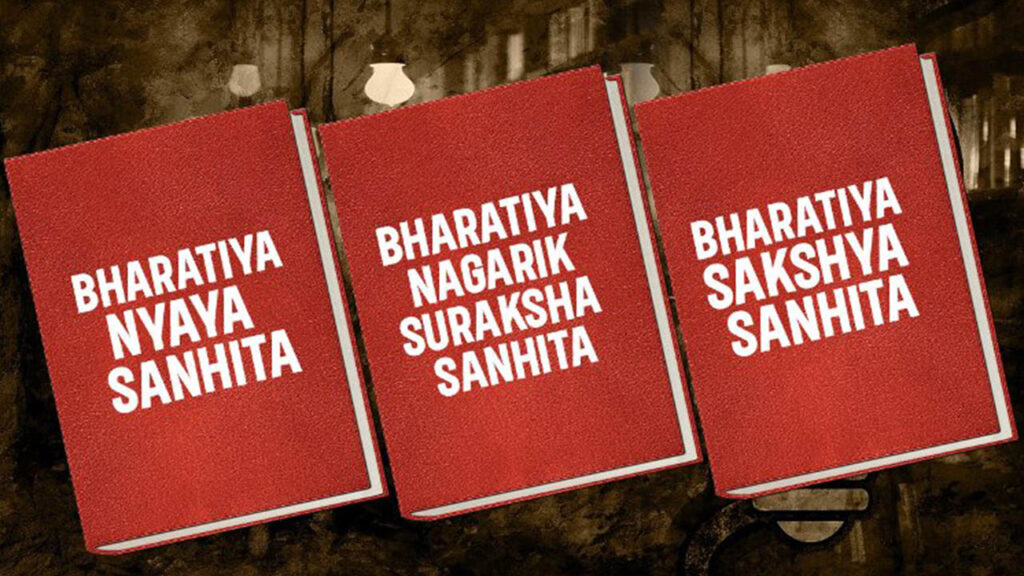India (Commonwealth Union)_ India has enforced 3 new criminal laws with effect from July 1, heralding a transformative era in its legal landscape. Accordingly, these laws, namely the Bharatiya Nyaya Sanhita, Bharatiya Nagarik Suraksha Sanhita, and the Bharatiya Sakshya Adhiniyam, are now replacing the longstanding colonial-era statutes: the Indian Penal Code, the Code of Criminal Procedure, and the Indian Evidence Act, respectively. As such, the inaugural application of these laws was marked by the registration of the first FIR under their jurisdiction.
Also read: Paradise on the debt crisis
This initial case, filed at Delhi’s Kamla Market Police Station, targeted a street vendor accused of blocking a footover bridge at New Delhi Railway Station, under Section 285 of the Bharatiya Nyaya Sanhita. In anticipation of these legal reforms, educational posters were prominently displayed across key locations in the national capital, including police stations at Connaught Place, Tughlak Road, Tughlaqabad, and others. These posters aimed to inform the public about the new laws and the imminent changes they would introduce.
Bharatiya Nyaya Sanhita
The first law, Bharatiya Nyaya Sanhita, with its 358 sections, introduced substantial modifications to the criminal justice system. It introduced 20 new offenses, increased sentences for 33 crimes, raised fines for 83 offenses, and mandated minimum punishments for 23 crimes. Additionally, the penalty of community service has been incorporated in six crimes and 19 sections have been abolished or eliminated in the Act. Notably, it established a dedicated chapter on ‘Crimes against Women and Children,’ addressing issues such as underage rape (below 18 years of age) and gang rape, aligning with the Protection of Children from Sexual Offences Act (Pocso). The punishment for Crimes against Women and Children include
Also read: Delhi Airport Terminal 1 roof collapse

The Bharatiya Nyaya Sanhita is the first document to describe terrorism and to make it an unlawful crime. The Bharatiya Nyaya Sanhita Section 113. (1), states that “whoever, with intent to endanger or is likely to endanger the unity, integrity, sovereignty, security or economic security or sovereignty of India or to cause or spread terror amongst the public or any section of the public in India or in any foreign country, commits any act using bombs, dynamite, explosive substances, poisonous gases, nuclear with intent to cause death to any person or persons, damage to property, or manufacture or smuggling of currency or so, he commits terrorist acts”.
Furthermore, terrorism was defined for the first time under this law, with severe penalties including life imprisonment or the death penalty for acts endangering national security. Provisions for zero FIRs, victim’s rights to information, and strict penalties for damaging critical infrastructure were also integrated into the framework.
Bharatiya Nagrik Suraksha Sanhita
The second law, the Bharatiya Nagrik Suraksha Sanhita, comprises 531 sections, compared to the 484 sections in the CrPC. This Sanhita has undergone significant modifications, with 177 provisions amended, and the addition of nine new sections and 39 new sub-sections. Additionally, 44 new provisions and clarifications have been incorporated. Timelines have been introduced for 35 sections, and audio-video provisions have been included at 35 places. Furthermore, 14 sections have been repealed from the Sanhita.
Bharatiya Sakshya Adhiniyam
The third law, Bharatiya Sakshya Adhiniyam, now includes 170 provisions, up from the original 167 provisions, with 24 provisions being amended. Additionally, two new provisions and six sub-provisions have been incorporated, while six provisions have been abolished or removed from the Adhiniyam.
Overall, the latest amendments to criminal justice in India represents a significant reorientation, prioritizing severe actions to crimes against women, children, and national security. Moreover, Bharatiya Nagarik Suraksha Sanhita, comprising 531 sections, and the Bharatiya Sakshya Adhiniyam, with 170 provisions, introduced complementary reforms aimed at enhancing citizen safety and bolstering evidentiary procedures respectively. These legislative updates underscore a pivotal moment in India’s legal history, prioritizing the protection of vulnerable groups and national security in the pursuit of justice.









